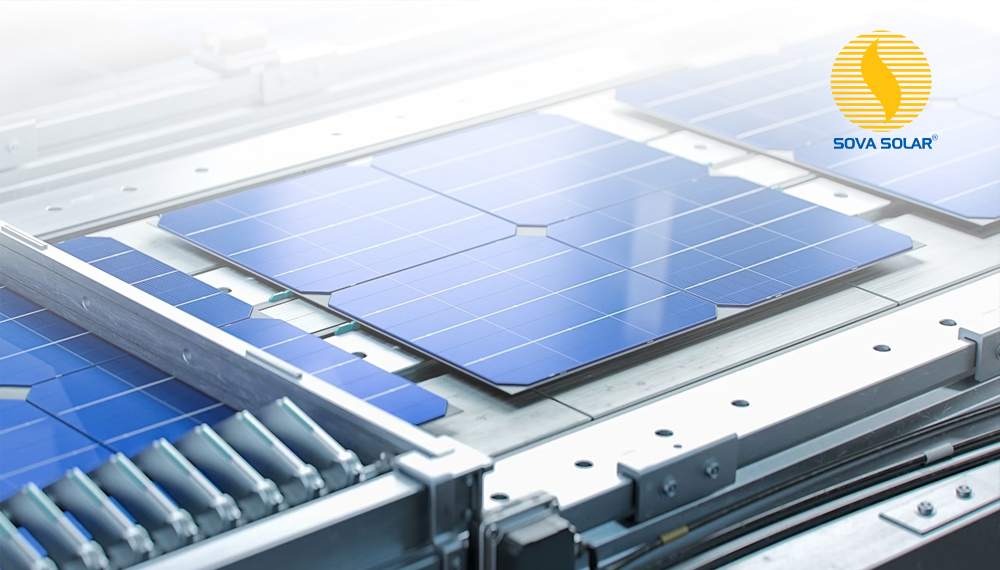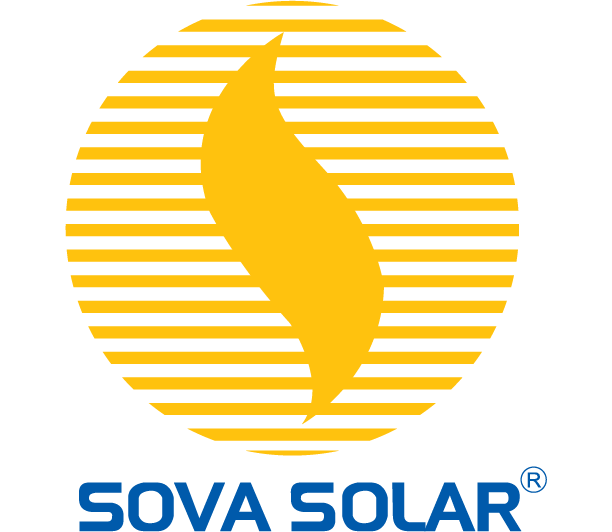
- sovasolar_admin
- Mar 5, 2024
- Uncategorized
- 0 Comments
In recent years, the solar industry has witnessed remarkable growth, driven by increasing awareness of renewable energy and the urgent need to combat climate change. As countries around the world strive to transition towards clean energy sources, the demand for solar panels has surged, leading to a significant expansion of the global solar supply chain. However, amidst this growth, both challenges and opportunities abound for stakeholders involved in the solar panel manufacturing process.
The Rise of Solar Energy in India
India has emerged as a key player in the global solar market, with ambitious renewable energy targets and favorable government policies driving substantial investments in the sector. As one of the sunniest countries in the world, India boasts immense solar potential, making it an attractive destination for solar panel manufacturers.
Best Solar Panel Manufacturer in India
When it comes to solar panel manufacturing in India, several companies have established themselves as industry leaders, renowned for their quality products and innovative technologies. Among them, Adani Solar, Tata Power Solar, and Waaree Energies stand out for their commitment to excellence and sustainability. These companies have invested heavily in research and development, consistently delivering high-performance solar panels tailored to meet the diverse needs of customers.
Solar Panel Manufacturing Hubs in India
India’s burgeoning solar industry has led to the emergence of manufacturing hubs in key cities across the country, including Delhi and Kolkata. These hubs play a crucial role in the solar supply chain, facilitating the production and distribution of solar panels to meet growing demand.
Solar Panel Manufacturing in Delhi
Delhi, the capital city of India, has witnessed a surge in solar panel manufacturing activities in recent years. With its strategic location and robust infrastructure, Delhi serves as an ideal hub for solar panel production. Companies like Vikram Solar have established manufacturing facilities in Delhi, leveraging the city’s skilled workforce and access to markets to cater to the increasing demand for solar panels.
Solar Panel Manufacturing in Kolkata
Kolkata, the cultural and industrial hub of Eastern India, has also emerged as a prominent destination for solar panel manufacturing. Companies such as Emmvee Solar and Premier Solar have set up manufacturing units in Kolkata, capitalizing on the city’s rich industrial heritage and favorable business environment. These companies prioritize quality and innovation, driving advancements in solar technology while contributing to the local economy.
Challenges in the Global Solar Supply Chain
Despite the tremendous growth opportunities presented by the solar industry, navigating the global solar supply chain is not without its challenges. From raw material shortages to supply chain disruptions, stakeholders face various hurdles that require careful navigation and strategic planning.
Supply Chain Disruptions
The solar industry relies heavily on a global supply chain, with components sourced from various regions around the world. Disruptions in transportation, trade tensions, and geopolitical uncertainties can impact the smooth flow of materials, leading to delays and increased costs for manufacturers.
Raw Material Shortages
Key raw materials such as silicon, glass, and aluminum are essential for solar panel manufacturing. Fluctuations in supply and demand dynamics, coupled with disruptions in mining and extraction activities, can lead to shortages and price volatility, posing challenges for manufacturers.
Opportunities for Innovation and Collaboration
Amidst the challenges, there are also ample opportunities for innovation and collaboration within the solar industry. From advancements in technology to strategic partnerships, stakeholders can leverage these opportunities to drive growth and sustainability.
Technological Advancements
Continued investment in research and development is crucial for driving technological advancements in the solar sector. Innovations in materials science, manufacturing processes, and energy storage solutions can enhance the efficiency and performance of solar panels, making them more accessible and cost-effective for consumers.
Collaboration Across the Value Chain
Collaboration across the solar supply chain, from raw material suppliers to manufacturers and installers, is essential for optimizing operations and addressing common challenges. Strategic partnerships and alliances can facilitate knowledge sharing, resource pooling, and risk mitigation, ultimately benefiting the entire industry.
As the global demand for solar energy continues to rise, navigating the solar supply chain presents both challenges and opportunities for stakeholders. By addressing challenges such as supply chain disruptions and raw material shortages while embracing opportunities for innovation and collaboration, the solar industry can sustain its momentum toward a cleaner, more sustainable future.
In India, companies like Adani Solar, Tata Power Solar, and Waaree Energies are leading the way in solar panel manufacturing, while cities like Delhi and Kolkata serve as key hubs for production and distribution. With continued investment and strategic planning, the solar industry is poised for further growth and transformation, driving progress towards a greener tomorrow.





